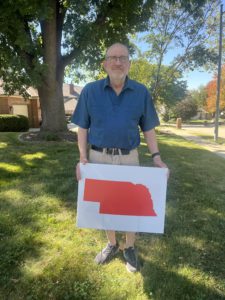I have the impression that few C.E.O.s today display the open candor that Ralph Nader admired in Paul Oreffice. Is that because cancel culture has been efficient at weeding out any rising executives who might be tempted to be candid? Or do I have a mistaken impression due to the press not reporting as often on the candid comments still being made by some C.E.O.s?
[I was happy to see that Oreffice had learned public speaking in a Toastmasters Club. I heard a lot about Toastmasters as a child–my father was very active in Toastmasters and was eventually elected President of the whole international self-help organization.]
(p. C6) In a 1977 speech at Central Michigan University, Jane Fonda accused Dow Chemical of exposing workers to dangerous substances and not paying its fair share of taxes. Paul Oreffice, who was then president of Dow’s U.S. operations, sent a letter to the university denouncing Fonda as “an avowed communist sympathizer” who was spreading “venom against free enterprise.”
He also cut off Dow’s donations to the university.
. . .
Addressing a business conference in 1979, Oreffice described environmentalists as “professional merchants of doom” and enemies who were destroying free enterprise, according to a Washington Post report.
. . .
Ralph Nader, the consumer-protection crusader, often was at odds with Oreffice but saw merit in his candor. “He is comparatively open to interviews, to questions from audiences, to debates,” Nader wrote in “The Big Boys,” a 1986 book written with William Taylor. “Despite his position as chief executive of a major corporation embroiled in ongoing controversies, he chooses not to hide behind company spokesmen and other bureaucratic shields.”
. . .
Oreffice resisted organization charts because he believed they “put people in boxes.”
. . .
. . ., Oreffice . . . learned public speaking at a Toastmasters club, . . .
As a CEO, he reduced costs and bureaucracy through attrition rather than mass layoffs. “How can you expect allegiance from your employees when you don’t show them any yourself?” he wrote in his memoir.
For the full obituary see:
(Note: ellipses added.)
(Note: the online version of the obituary has the date January 29, 2025, and has the title “Paul Oreffice, Outspoken Former CEO of Dow Chemical, Dies at 97.” Where the wording is different between the two versions, the passages quoted above follow the online version.)
Oreffice’s memoir mentioned above is:
Oreffice, Paul. Only in America: From Immigrant to CEO. Macon, GA: Stroud & Hall Publishers, 2006.


